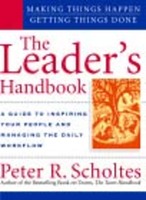Blog posts on respect for peoplePosts selected fromManagement Blog - Engineering Blog - Investing Blog and other blogs - Cognition: How Your Mind Can Amaze and Betray You
 This webcast provides another view into the area of Deming’s management system on the theory of knowledge (the one most people forget), how we know what we know and how that belief isn’t always right.
Two of the four components of Dr. Deming’s management system were about our brains (psychology is the other) which makes a great deal of sense when you think about how focused he was on the human element in our organizations... continue reading: Cognition: How Your Mind Can Amaze and Betray You - Podcast: Building Organizational Capability
 - Educate New Managers on Their New Responsibilities
 Far too often companies promote employees into management positions and expect them to fulfill the obligations of their new position without helping prepare them to meet their new responsibilities. People who excelled at doing their non-supervisory job often have little education or experience to succeed with their new responsibilities.
Managing a software development team is a completely different job from being a great software developer. Most everyone would acknowledge that: but if you look at what actually happens in many organizations the management system is not setup with this fact in mind. continue reading: Educate New Managers on Their New Responsibilities - Dilbert and Deming
 Dilbert can show the silliness that is common place in many workplaces, as just that – silly. Point 10 of Deming’s 14 points called on management to eliminate slogans.
...
The text works well for me, but I think Dilbert provides a great service in pointing out the same idea that such slogans are silly and even harmful in a way many others find more accessible. continue reading: Dilbert and Deming - Agile Software Development and Deming's Ideas
- Performance without Appraisal
 In the short article Performance Without Appraisal: What to do Instead of Performance Appraisals, Peter wrote:
Dr. Deming said of Performance Appraisals, “Stop doing them and things will get better.” He was correct. Many organizations, however, wonder what to do instead.
For those that do require “some alternative” Peter included some good ideas in The Leader’s Handbook(see chapter 9 “Performance without Appraisal pages 293 to 368). This chapter has excellent material for any manager. continue reading: Performance without Appraisal - W. Edwards Deming’s Seven Deadly Diseases
Seven Deadly Diseases
- Lack of constancy of purpose
- Emphasis on short term profits (Overreaction to short term variation is harmful to long term success. With such focus on relatively unimportant short term results focus on constancy of purpose is next to impossible.)
- Evaluation of performance, merit rating or annual review (see: Performance Without Appraisal: What to do Instead of Performance Appraisals by Peter Scholtes).
- Mobility of top management (too much turnover causes numerous problems)
- Managing by use of visible figures, with little of no consideration of figures that are unknown or unknowable.
continue reading: W. Edwards Deming’s Seven Deadly Diseases - How Toyota Turns Workers Into Problem Solvers
This idea is simple. Creating an environment where this is actual the way things are, not just the way things are said to be, is difficult. That is why I believe so strongly in Deming’s management philosophy. The organization must be viewed as a whole. Benefits can be gained by adopting some concepts in a piecemeal manner. However, many benefits accrue only when the positive interactions between Toyota Production System (TPS – Lean) concepts occur (as systems thinking would predict). continue reading: How Toyota Turns Workers Into Problem Solvers - Performance Without Appraisal
The comments on the mini-microsoft blog shows performance appraisal continues to be an emotional topic. People on opposite sides of the debate are very passionate.
I admit it took me longer to accept Dr. Deming’s thoughts on performance appraisal than other ideas (and that is even with Peter Scholtes being a friend which gave me the opportunity to discuss the idea with him). So I understand it is not an easy concept to accept. continue reading: Performance Without Appraisal - Seven Leadership Leverage Points
IHI has the courage to say one of the 3 sources for there hypothesis as “Hunches, Intuition, and Collective Experience.” While attempting to base plans on data and not hunches is good. Often you must make decisions without data. It is why Dr. Deming was so concerned with mobility of top management: that mobility means many managers don’t really understand what they are managing. Lean thinkers understand the value of having managers with deep knowledge of the areas they manage. continue reading: Seven Leadership Leverage Points - Toyota Engineers a New Plant: the Living Kind
Toyota’s vision:
First, making things that benefit both people and the world as a whole.
…
Second, as a member of society, we must fulfill our responsibilities to all stakeholders. We must provide to customers cleaner, safer, and more attractive products with excellent value. To shareholders, we must enhance share value through long-term and stable growth by increasing profits and paying appropriate dividends. With business partners, we must engage in fair business based on a spirit of mutual benefit.
To our employees, we must provide a workplace where they can work with pride based on mutual trust and responsibility between labor and management, and respect for people.
continue reading: Toyota Engineers a New Plant: the Living Kind - Management Training Program
So I said to the Toyota executive, “You’ve only got two or three suppliers per category, and you never take bids. How do you know you aren’t being ripped off?” So this guy, who was around 60, gives me an incredibly frosty look and says, “Because I know everything.” Everything? “That’s my job,” he says.
Reading “Because I know everything” brings to mind an arrogant blowhard to many in America (I think). Probably because most who would say that, are arrogant blowhards. But when someone has worked (a Toyota executive or a baker) for 40+ years in the same area those words can have quite a different meaning than a 31 year old MBA working in his third industry. Managing with constancy of purpose and long term thinking can make a big difference. continue reading: Management Training Program - Appreciation for Bill Hunter
 I frequently receive kind words from people who knew my father. A recent note:
I just thought I’d let you know how much I enjoyed your dad’s class as a grad student in 1979 at UW-Madison. I’m sure you’ve heard many comments like this, but I’ll add one more. He was a delightful and entertaining prof who clearly loved his subject. He made an impression on me one day by asking us a question about the British comedy radio program, The Goon Show, which I had heard. I think I was the only member of the class who raised his hand. After that moment, I always felt a special bond with him, because I thought it was great that he appreciated the wacky humor of that show.
I received a wonderful education at UW and your dad was no small part of it.
continue reading: Appreciation for Bill Hunter - Superior Customer Experiences Start with Respect for Employees
Oakley found that there is a direct link between employee satisfaction and customer satisfaction, and between customer satisfaction and improved financial performance. Employee satisfaction is a key antecedent to employee engagement. He also found that organizations with engaged employees have customers who use their products more, and increased customer usage leads to higher levels of customer satisfaction.
This is not a zero-sum game. Good managers grow the pie so all the stakeholders can get more benefit (customers, investors, employees…). continue reading: Superior Customer Experiences Start with Respect for Employees - Toyota Manufacturing Powerhouse
Unusual among automakers, “they don’t hide a lot,” Coventry said. “It’s like going to the Super Bowl and having the opposite side throw their playbook on the table. It’s as if they feel they can still beat you on the field.”
Toyota has greatly advanced management practice worldwide through their actions.
In a reflection of Toyota’s team-oriented approach, its executive pay is paltry by U.S. standards. Analyst Ron Tadross at Banc of America Securities estimates the total annual compensation of Toyota’s CEO at under $1 million – about as much as a vice president at GM or Ford Motor Co. makes in a good year.
The executive pay crisis in America is a symptom of the failure of American management to understand their role. Executives are part of the system and have acted shamefully in allowing obscene pay for a few while claiming they must force others to suffer (due to “the market”). continue reading: Toyota Manufacturing Powerhouse
|